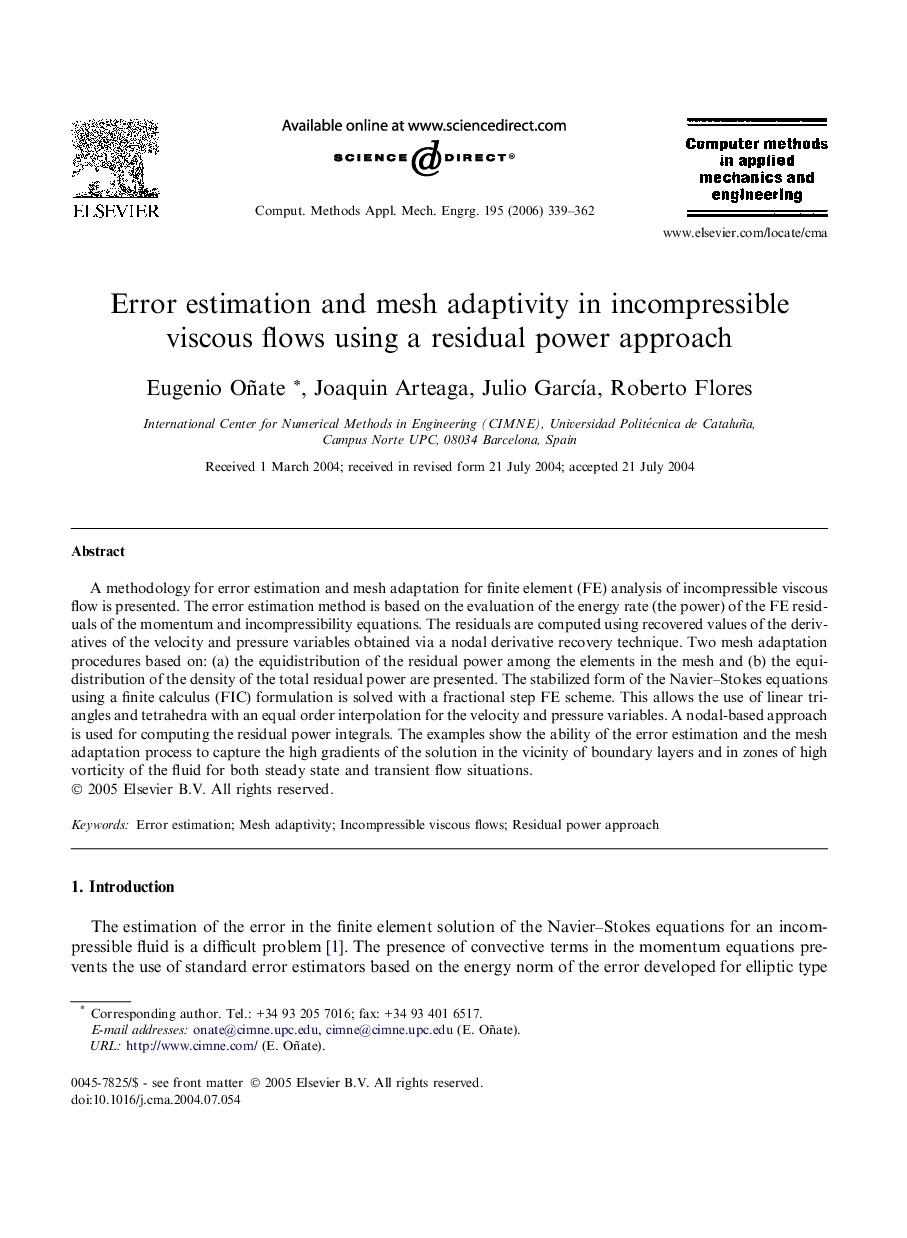| Article ID | Journal | Published Year | Pages | File Type |
|---|---|---|---|---|
| 500687 | Computer Methods in Applied Mechanics and Engineering | 2006 | 24 Pages |
A methodology for error estimation and mesh adaptation for finite element (FE) analysis of incompressible viscous flow is presented. The error estimation method is based on the evaluation of the energy rate (the power) of the FE residuals of the momentum and incompressibility equations. The residuals are computed using recovered values of the derivatives of the velocity and pressure variables obtained via a nodal derivative recovery technique. Two mesh adaptation procedures based on: (a) the equidistribution of the residual power among the elements in the mesh and (b) the equidistribution of the density of the total residual power are presented. The stabilized form of the Navier–Stokes equations using a finite calculus (FIC) formulation is solved with a fractional step FE scheme. This allows the use of linear triangles and tetrahedra with an equal order interpolation for the velocity and pressure variables. A nodal-based approach is used for computing the residual power integrals. The examples show the ability of the error estimation and the mesh adaptation process to capture the high gradients of the solution in the vicinity of boundary layers and in zones of high vorticity of the fluid for both steady state and transient flow situations.
